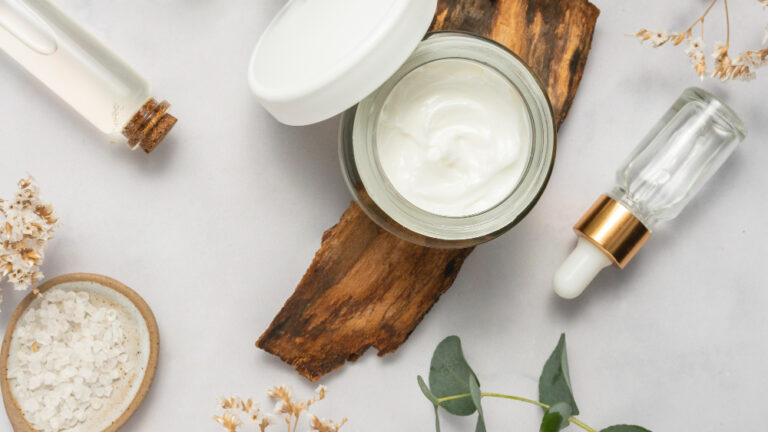Steps To Take Now For A Healthier Future
The risk of developing health conditions and ailments increases as you get older. It’s not possible to prevent every disease or health issue, but being proactive in your 20s, 30s, 40s and 50s can stand you in good stead for later life. In this guide, we’ll outline some effective steps to take now for a healthier future.
Learning about nutrition
When you hear the word diet, it’s understandable to start thinking about weight loss. Many of us automatically associate diet with losing weight, and we conjure up images of fad diets and trends that capture the media spotlight and dominate social media feeds. One of the most important steps to take when trying to boost health and lay the foundations for optimum health in the future is to prioritize nutrition over the numbers on the scale. Your diet should provide your body with the essential nutrients it needs. Losing weight isn’t always a sign of healthy eating habits and having a normal BMI (body mass index) doesn’t necessarily mean that your diet is nutritious.

Learning about nutrition and the impact the foods you eat have on your body is hugely beneficial. If you’re unsure whether your diet is healthy and balanced, or you’d like to find out more about what you eat in an average week, it’s a brilliant idea to download a food diary app. Enter details of the foods and meals you eat every day and read the nutritional information. Your app can help you to count calories and it will also tell you whether you’re hitting or missing the daily recommended targets for specific food groups, vitamins and minerals. Analyze every entry and highlight areas for improvement. Once you have an idea of which foods you need to add or take out and how to adjust quantities or portion sizes, you can implement healthy eating guidelines to boost nutrition in the short and long term.
Understanding hormonal changes
One of the most crucial aspects to be aware of as you age is the hormonal changes that will take place in your body. Both men and women experience decreases in hormones as they get older, which can impact everything from energy levels and moods to body weight and libido. It’s beneficial to understand hormonal changes and to try to be as prepared as possible for shifts that take place as a result of pregnancy and breastfeeding, menopause and the natural aging process. It’s helpful to read articles from reputable sources, seek advice from medical experts and speak to friends or family members who have been through the same changes. It’s also important to realize that you don’t have to struggle in silence if you are finding it hard to cope with symptoms of menopause or reduced hormone levels. Treatments like hormone replacement therapy are available and there are also remedies designed to alleviate or reduce the severity of symptoms. Speak to your doctor if you have any concerns, you notice new symptoms, or you feel out of sorts.
Adopting a more active lifestyle
Regular exercise is one of the best ways to protect your body and mind and lower the risk of health issues both in the present and the future. If you don’t have an active lifestyle, making changes to your daily or weekly routine will make an incredible difference to your health and well-being. Experts recommend doing around 150 minutes of exercise per week, but around a quarter of adults are inactive. If you don’t meet activity targets now, start building up your fitness and working towards goals. You could do this by increasing your daily step count, working out at home, going jogging or walking, doing exercise classes, cycling or walking to work, joining a sports club or taking up active hobbies, such as hiking, mountain biking, swimming, playing golf or rock climbing.
Being more active offers an array of benefits for your health. If you exercise regularly, you can reduce your risk of depression, anxiety, heart disease, type 2 diabetes, some types of cancer, dementia and osteoporosis. You should also find that as well as strengthening your body and improving flexibility and suppleness, you also feel better. Exercise releases happy hormones, known as endorphins, and it energizes you due to the increase in levels of dopamine and serotonin in the brain. Being active can also help you to sleep better and it may also prove an effective stress-buster. Many people find that playing sports, doing a workout or embracing outdoor activities helps them to clear their mind, reduce stress and manage their emotions.
If you have a sedentary lifestyle, start slowly. Going for a walk every day is a fantastic way to get fitter. Use an activity tracker to show you how many steps you’re taking and how many minutes of exercise you’re completing each day. Set realistic goals, celebrate achievements and keep going. If you’re starting at 2,000 steps per day, try to get to 3,000 then 5,000 and then work your way up to 7,000 as you get fitter and your endurance improves. If you don’t like the idea of going to the gym, walking for miles or going running, there are endless options to choose from. Try different activities, vary workouts and make exercise fun. Go to classes with a friend, get the family together for a bike ride, or try something different like puppy yoga, trampolining or wild swimming.
Prioritizing good quality sleep
Sleep is essential for good mental and physical health, but studies show that over a third of US adults don’t get enough sleep. Most of us can survive on a few hours of sleep if sleepless nights are isolated, but if you don’t get enough rest over a prolonged period, your health will start to suffer. A lack of sleep can affect your mood and your energy levels, and it can also make you more susceptible to illnesses and infections. You may also find that you can’t concentrate at work and you find everyday tasks more difficult. Prioritize good quality sleep. Experts recommend 6-8 hours of sleep per night for adults.
If you have difficulty sleeping, try self-help methods. Examples include frequent exercise, setting regular bedtimes and morning alarms, taking time to relax and de-stress before going to bed and spending time outside. It’s also beneficial to think about your sleep environment. Most people sleep best when the room is dark and quiet and it’s not too hot or cold. Declutter your bedroom, invest in heavy curtains or blackout blinds and create a cozy, inviting and tranquil space. Think about your use of color when decorating your bedroom. Opting for soothing shades can help you to feel calm and serene. Choose pastels or neutrals or go for tones of blue, green or purple rather than using colors that boost energy levels, such as yellow and orange. Keep gadgets out of the bedroom and resist the temptation to watch TV or use your phone or tablet when you’re in bed.
Practicing self-care
Self-care is a concept that has really gathered pace in the last few years. Essentially, it means looking after yourself. Many of us have busy schedules and we tend to devote a lot of time and energy to work, looking after other people and checking off jobs on our to-do lists. Practicing self-care is beneficial for your well-being and it’s a simple way to protect against physical and mental health issues.
Basic self-care steps include making time for rest and recovery, spending more time doing things and seeing people that make you happy, putting your needs first from time to time, eating well and exercising regularly. Take time out, pamper yourself, surround yourself with good friends and people who lift and support you and make time for regular exercise. Make sure your diet nourishes your body and try to identify and avoid triggers, which contribute to stress, low mood or anxiety. Take breaks from social media if you find that scrolling affects your mental health, or limit contact with people who put you down or make you feel uneasy. Avoid checking work emails once you’ve left the office and talk to people if you have things on your mind. If you don’t feel comfortable opening up to people you know, such as friends and relatives, talk to a therapist or contact charities that offer helplines.
Keeping up with routine tests and appointments
Be honest. When was the last time you went to the dentist or had your eyes tested? If you tend to ignore invitations, or you find that you forget to schedule appointments, it’s wise to get into the habit of making appointments. Keeping up with routine tests and checks is a simple way to keep your health on track. See your dentist every 6-12 months, keep on top of hearing and vision tests and look out for letters and messages about other basic health checks and screening tests. It’s beneficial to monitor your blood pressure and your BMI and to make sure that you seek help or advice if you notice any changes in your oral or general health or your vision or hearing.
When it comes to your health, it’s never too early to lay the foundations for the future. Being proactive in protecting your body and mind now can provide amazing benefits further down the line. Learn about nutrition, adopt an active lifestyle and find out more about hormonal changes that occur later in life. Keep up with routine tests and appointments, practice self-care and prioritize good quality sleep.






